Vessel Attacked Near Yemen A Day After Iran Seized Oil Tanker
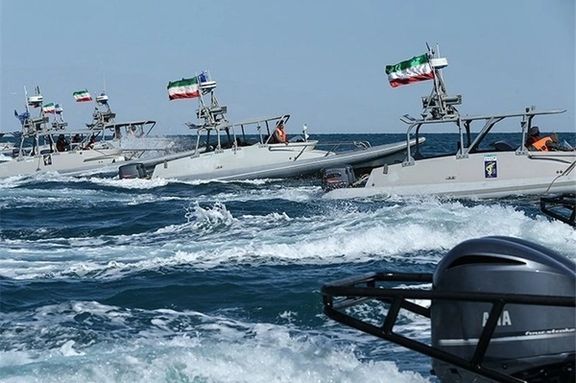
A vessel has come under attack from three boats with three or four people aboard south of Yemen's coastal town of Nishtun with shots being fired at the vessel.

A vessel has come under attack from three boats with three or four people aboard south of Yemen's coastal town of Nishtun with shots being fired at the vessel.
Britain's Maritime Trade Operations (UKMTO) reported the attack on Friday without further details on the vessel or the perpetrators.
The Gulf of Aden is a crucial route for global trade and has seen numerous attacks attributed to Yemen’s Iranian-backed Houthi rebels amid the civil war in the country as well as the proxy war between Tehran and Riyadh.
The region was also once plagued with Somali pirate attacks, but they have significantly decreased in recent years. It is not clear if the Friday attack is the work of Houthis or pirates.
Nishtun is held by forces allied to Yemen's internationally recognized government, backed by the Saudi-led coalition, but Houthi attacks have happened there before such as in December 2020.
The attack occurred a day after Iran’s navy seized a Marshall Islands-flagged oil tanker in the Gulf of Oman amid wider tensions over Tehran’s nuclear program.
The US Navy’s Mideast-based 5th Fleet identified the vessel as the Advantage Sweet.
Satellite tracking data for the vessel from MarineTraffic.com showed it in the Gulf of Oman just north of Oman’s capital, Muscat, on Thursday afternoon. It had just come from Kuwait and was carrying crude for Chevron to Houston, Texas.
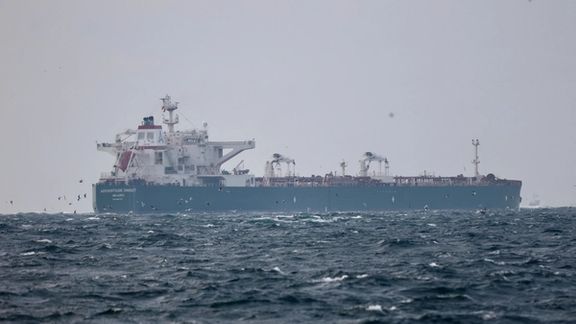
Iran’s navy seized a Marshall Islands-flagged oil tanker in the Gulf of Oman on Thursday amid wider tensions over Tehran’s nuclear program, the US Navy said.
The Navy’s Mideast-based 5th Fleet identified the vessel as the Advantage Sweet. Satellite tracking data for the vessel from MarineTraffic.com showed it in the Gulf of Oman just north of Oman’s capital, Muscat, on Thursday afternoon.
It had just come from Kuwait and listed its destination as Houston, Texas.
The Advantage Sweet, a Suezmax oil tanker built in 2012, issued a distress call at 1:15 p.m. while in international waters as Iran seized the vessel, the Navy said.
According to the International Maritime Organization (IMO) shipping database, the Advantage Sweet is owned by a China-registered company called SPDBFL No One Hundred & Eighty-Seven (Tianjin) Ship Leasing Co Ltd.
Iran's army later said it had seized the oil tanker after it collided with an Iranian boat, injuring several crewmen, Iranian state media reported.
"A Marshall Islands-flagged oil tanker was seized by Iranian army's naval force in the Persian Gulf after it collided with an Iranian boat in the Gulf of Oman and tried to flee," the army statement said.
"Two members of the boat's crew are missing and several were injured due the collision of the ship with the boat."
However, the 5ht Fleet said, “Iran’s actions are contrary to international law and disruptive to regional security and stability. Iran should immediately release the oil tanker.”
It also said the Iranian seizure was at least the fifth commercial vessel taken by Tehran in the last two years.
“Iran’s continued harassment of vessels and interference with navigation rights in regional waters are a threat to maritime security and the global economy,” the statement added.
Iran in November released two Greek-flagged tankers that it seized in the Persian Gulf in May.
With reporting by AP and Reuters
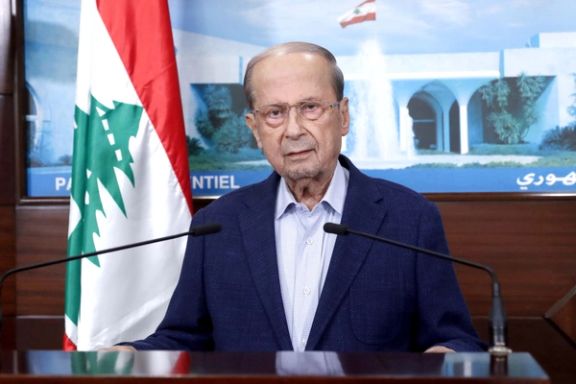
Iran has urged political factions in Lebanon to speed up the presidential elections, distancing itself from its proxy, Hezbollah.
In spite of Iran’s historic interference in Lebanese politics through its backing of the terror group, the regime’s Foreign Minister Hossein Amir-Abdollahian, said: "We will support any agreement that is reached among the Lebanese parties regarding the election of the president.”
Since former president Michel Aoun's term expired on 31 October, there has been no agreement on who shall succeed him.
The Iranian-backed Hezbollah party has supported the nomination of Suleiman Franjieh to be president. Franjieh comes from a noble Lebanese family, and his grandfather was president when Lebanon's 1975-1990 civil war erupted.
In a sidestepping of the regime’s political influence in the country where the economy is on its knees, he said: “We call on foreign countries to support the decision made by the Lebanese without interfering with its affairs."
The distance coming between the regime and Hezbollah, listed as a terror group in countries including the US, UK, Germany, the Arab League and Israel, may be a result of Iran’s recent detente with Saudi Arabia, which had been a vocal supporter of the Arab League’s listing of the group in 2017.
Saudi has also been involved in an eight-year war with another of Iran's proxies, the Houthis, in Yemen.
According to sources quoted in Al-Jumhuriya newspaper, Amir-Abdollahian may ask Tehran's allies in Lebanon to end their support for Suleiman Franjieh's presidential bid because "protecting the renewed relationship with Riyadh has the priority”.
After talks mediated by Chinese President Xi Jinping in Beijing, Iran and Saudi Arabia agreed to restore relations back in March.

Iran’s foreign ministry has denied a report by The Wall Street Journal that Tehran has been shipping artillery shells and other ammunition to Russia.
Spokesman of the ministry Naser Kanaani on Wednesday said, Iran is opposed to war and supports a ceasefire and peace in Ukraine.”
WSJ reported that Iran has shipped over 300,000 artillery shells and about a million rounds of ammunition to Russia using cargo ships in the Caspian Sea.
The report published on Monday stated that the weapons were delivered over the past six months, and then sent to the frontlines in Ukraine.
Officials in the Middle East have told the WSJ that the last shipment of weapons to Russia crossed the Caspian Sea aboard the 460-foot Russian cargo ship Rasul Gamzatov in early March. The company owning the vessel has already been sanctioned by the US.
US State Department spokesperson said Monday, “This is – the Russian Federation’s deepening of relations with the Iranian regime also continues to be something that is deeply concerning to us and something that we are continuing to pay close attention to. “
Last summer, Russia turned to Iran for help. Iran initially provided hundreds of kamikaze drones and agreed to provide more than 300,000 artillery shells.
Iran first denied it had supplied drones to Russia but in early November foreign minister Hossein Amir-Abdollahian admitted the deliveries, but claimed they were sent before the Russian invasion.
Several months ago, the United States and other allies of Ukraine said Tehran was ready to send ballistic missiles to Moscow. However, experts say this has not happened yet.
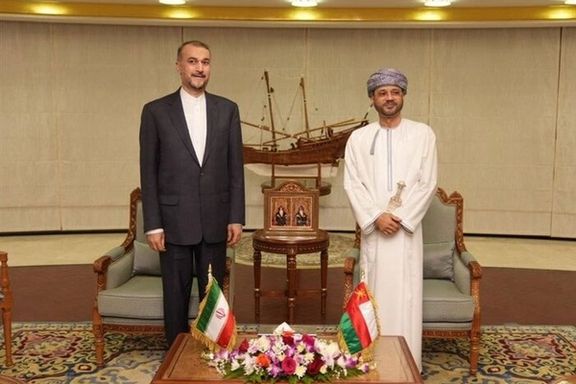
Iran’s foreign minister Hossein Amir-Abdollahian during a visit to Oman has discussed the conflict in Yemen and the status of Iran’s nuclear talks with the West.
Iran’s official news agency IRNA reported Wednesday that Amir-Abdollahian met with Oman’s foreign minister Sayyid Badr Albusaidi and thanked him for mediation efforts by Sultan Haitham bin Tariq and the government of Oman “for their positive role” in JCPOA nuclear talks.
IRNA quoted Amir-Abdollahian as saying, “In addition to issues relating to expanding relations, I discussed regional issues with my Omani counterpart, as well as international problems, such as Palestine, Yemeni reconciliation and the situation in Sudan.”
IRNA commented that Oman has played an important role in Iran’s nuclear talks, “exchange of prisoners between Iran and the West”, and contacts between Iran and Saudi Arabia.
Oman has long played a mediating role between Tehran and Washington. First contacts in 2013 to launch nuclear talks were facilitated by Oman.
Meanwhile, Russian foreign minister Sergei Lavrov visiting the United Nations in New York, told reporters during a news conference on Tuesday that the revival of the JCPOA nuclear deal does not depend on Russia, China or Iran, indirectly accusing the United States for freezing talks.
The European Union presented a compromise agreement draft to Iran and Western powers last August, after 18 months of talks, but the United States accused Iran of stonewalling and presenting “extraneous” demands. In October, Washington said it is not focused on the talks any longer, demanding that Iran stop weapons supplies to Russia, among other things.
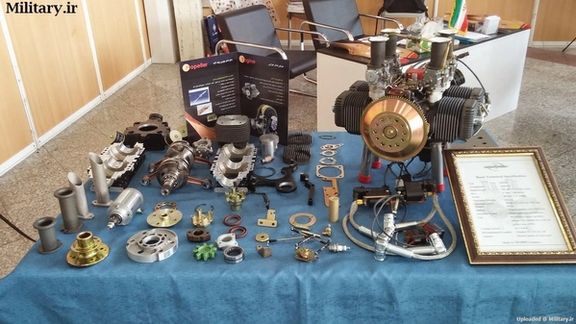
Two years since Myanmar’s military coup, widespread violence continues to escalate across the country, with growing indications and accusations of Iranian support to the junta.
Myanmar has been plagued by conflict and instability for decades. The country is home to multiple ethnic groups, many of which have been in conflict with the government. The situation has been further complicated when on Feb. 1, 2021, the Myanmar military, or Tatmadaw, deposed the democratically elected government led by the National League for Democracy.
The coup triggered countrywide protests that were followed by a crackdown leaving hundreds of civilians dead and several thousand detained.
As resistance to the junta continues, international research organizations, including the Center for Strategic and International Studies, have been suggesting that the Myanmar military has deployed a fleet of Chinese-made unmanned aerial vehicles to identify and locate potential targets.
Chinese drones have been used by the Myanmar military since 2015 to support counterinsurgency operations in the country’s restive north. But the unrest following the 2021 coup has increased demand for their use and for their spare parts, especially engines, which are widely believed to have been purchased from Iran.
“The engines were requested shortly after the coup, because some of the drones were showing the signs of wear and tear ... All the talks were with the Iranians,” Capt. Nyin Nyin Wai, a Myanmar army defector, told Iran International.
He said “there was a lot of back and forth” in the talks and it took a long time until the engines were delivered, but before leaving the military in December 2022, he saw documents confirming that Iranian parts had been ordered.
“I was in the meetings, and I saw the papers,” he said. “It was MD550.”
The MD550 is a drone engine that is reverse-engineered from a prototype designed in the 1980s by the German company Limbach.
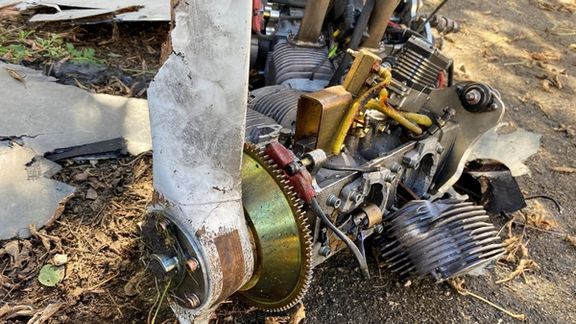
The Washington DC-based Wisconsin Project on Nuclear Arms Control and the US watchdog United Against Nuclear Iran believe it is produced by Iranian manufacturer Oje Parvaz Mado Nafar Company or MADO.
“It’s a strong claim. There are several credible sources,” UANI research director Daniel Roth told Iran International.
“It’s a little confusing because the original engine is made by Limbach (the L550E), and the MD550 is described as a ‘Chinese copy.’ The collected evidence suggests that it’s now probably made by both China and Iran — but mainly Iran.”
A January report by UANI, an analysis of the Iranian National Aerospace Exhibition showed photographs of the MD550 engine being displayed at the show in Tehran in 2012 — a year after MADO was established.
The company has been subject to US sanctions since October 2021.
According to the former army captain Nyin, the MD550 engines were supplied as replacement parts to the Myanmar Air Force, and repairs were conducted in the Meiktila Air Base Park in the Mandalay area of the country’s north.
It is unclear when exactly the first engines reached Myanmar from Iran, but early last year, data from flight tracker Flightradar24 showed Fars Air Qeshm — an Iranian cargo airline sanctioned by the US for carrying weapons and fighters to Syria — flying to Yangon from Mashhad, Iran’s second-largest city.
Since then, increased drone activity has been reported in the areas of Myanmar where the anti-junta opposition has been concentrated.
“Surveillance drones are used to learn where to target next,” Nyin said. “The focus was on Karen State, Sagaing Division, Mandalay area, Bago region.”
Rights activist Nicky Diamond from the Southeast Asia-based NGO Fortify Rights has experienced first-hand the surveillance drones flying in the mountainous areas of the eastern Karen State in March and June 2021.
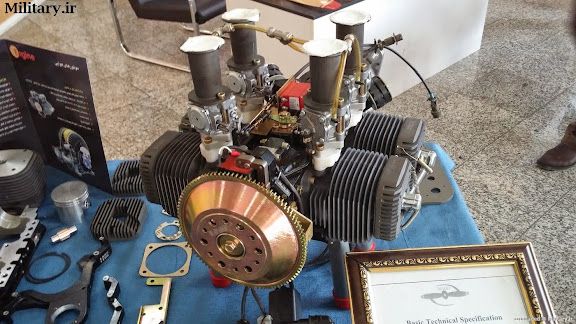
“China’s weapons and Iranian supplies are instrumental in oppressing revolutionary forces on the ground,” he said.
“Iran is under international sanctions, and it’s concerning that they are able to supply drones ... It’s a reminder that we need to do more to prevent the flow of weapons to conflict zones ... The issue of drone supply from Iran to Myanmar is a cause for concern and must be addressed to ensure the safety and security of the people.”
The situation in Myanmar is complex, and the Iranian regime’s support for the Myanmar junta is just one of the many issues that complicate it further, with the potential to make the already volatile circumstances even more dangerous.
Myanmar’s government in exile, the National Unity Government, has been raising concerns about the junta’s ties with Iran, as likely to further destabilize the country and lead to more violence.
“We are aware of the military relations between Iran and Myanmar military junta since the coup,” Naing Htoo Aung, spokesperson of the NUG Ministry of Defense, told Iran International.
“Myanmar military’s campaign of terror against its citizens is being aided by a country like Iran, which not only makes the Iranian army or government accomplice but also poses a threat to regional and international security.”
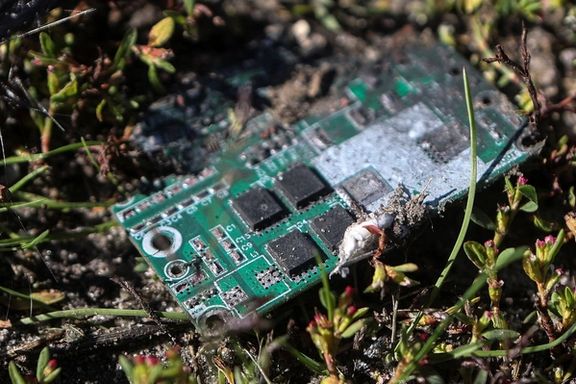
As the situation in Myanmar continues to deteriorate, the international community faces a difficult decision on how to respond to the junta’s actions. Until now, however, the UN has not imposed a binding arms embargo on Myanmar, despite calls from rights groups and the government in exile.
Special Envoy of the UN Secretary-General on Myanmar Noeleen Heyzer briefed the UN General Assembly on the situation on March 16, saying that the “violence continues at an alarming scale” and that “heavy fighting has spread to areas previously unaffected by conflict, putting more civilian lives at risk and further complicating humanitarian operations delivering lifesaving assistance.”
Heyzer said that 17.6 million people — about a third of the country’s population — are in need of humanitarian assistance, more than 1.6 million are internally displaced.
“Arms embargo to Myanmar military junta would be ideal to deter the junta’s killing of innocent citizens,” Naing Htoo Aung said.
“If arms embargo is not possible, then the UN and international community should seek to provide effective support to the resistance side to help them defend their lives.”